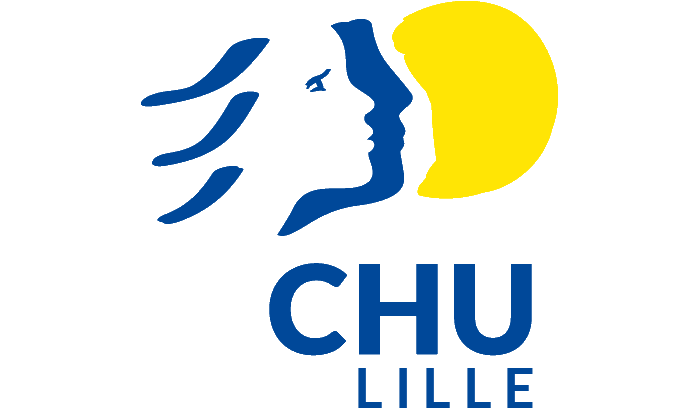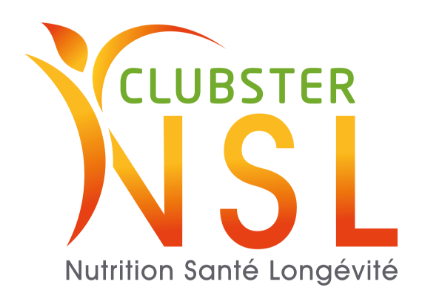-
Health and Nutrition
Nuclear Receptors, Metabolic and Cardiovascular Diseases (RNMMC)
Research unit - U 1011
Our laboratory studies the biological and molecular mechanisms controlling the development and progression of type 2 diabetes and its cardiovascular complications, in order to develop preventive and therapeutic strategies. We study the regulation of genes involved in these pathologies and the consequences of their deregulation, with a particular interest in specific transcription factors: nuclear receptors which constitute potential therapeutic targets. Our previous studies have identified nuclear receptors, such as PPARs and LXRs, as metabolic regulators and pharmacological targets, and have led to a better understanding of the side effects of synthetic ligands of nuclear receptors currently used in therapies or under development. We are open to all academic and industrial collaborations and propose services in line with our expertise.
-
Bart Staels
Director
1 rue du Professeur Calmette
Institut Pasteur de Lille, BP 245
59019 LILLE
https://u1011.pasteur-lille.fr/accueil/
Effectif
Effectif total : 129
Personnel de recherche : 53
Personnel d'appui à la recherche : 56
Skills
• Hallmark of Type 2 Diabetes
• Regulatory role of nuclear receptors in the inflammatory process in adipose tissue, the liver and vascular wall
• Molecular mechanisms by which nuclear receptors may modulate the progression to Type 2 Diabetes
• Pathophysiology of early (metabolic syndrome) and late stages of Type 2 Diabetes, obesity and cardiovascular diseases
• Contribution of nuclear receptors to the pathophysiology of Type 2 Diabetes and cardiovascular diseases
• Metabolic regulators (FXR, Reverba, RORa and orphan receptors)
• Therapeutic potential of selective ligands
Example(s) of projects
• ANR-NASHILCCD8 – Contribution of ILCs and CD8 T cells to non-alcoholic fatty liver disease and its progression to hepatocarcinoma (2019-2022)
• ANR-CALMOS – Mitochondrial calcium homeostasis and cardiac arrhytmias in the metabolic syndrome (2019-2022)
• ANR-MET Intestin – Acute effect of metformin on intestinal sodium-glucose co-transport (2019-2022)
Example(s) of publications
• Beyond the rule of 5: impact of PEGylation with various polymer sizes on pharmacokinetic properties, structure-properties relationships of mPEGylated small agonists of TGR5 receptor. V. Hoguet, M. Lasalle, M. Maingot, G. Dequirez, R. Boulahjar, F. Leroux, C. Piveteau, A. Herledan, A. Biela, J. Dumont, O. Chavez-Talavera, L. Belloy, I. Duplan, N. Hennuter, L. Butruille, S. Lestavel, E. Sevin, M. Culot, F. Gosselet, B. Staels, B. Deprez, A. Tailleux, J. Charton. J. Med. Chem., 2021, 64, 1593-1610.
• Cholangiopathy and biliary fibrosis in Cyp2c70-deficient mice are fully reversed by ursodeoxycholic acid. J.F. De Boer, H.D. De Vries, A. Palmiotti, R. Li, M. Doestzada, J.A. Hoogerland, J. Fu, A.M. La Rose, M. Westerterp, N.L. Mulder, M.V. Hovingh, M. Koehorst, N.J. Kloosterhuis, J.C. Wolters, V.W. Bloks, J.T. Haas, D. Dombrowicz, B. Staels, B. Van De Sluis, F. Kuipers. Cell. Mol. Gastroenterol. Hepatol., 2021, 11, 1045-1069.
• Apolipoprotein A5 controls fructose-induced metabolic dysregulation in mice. C. Ress, J. Dobner, K. Rufinatscha, B. Staels, M. Hofer, S. Folie, B. Radlinger, T.E. Adolph, E.M. Rubin, M. Roden, H. Tilg, S. Kaser. Nutr. Metab. Cardiovasc. Dis., 2021, 31, 972-978.
• NASH-related increases in plasma bile acid levels depend on insulin resistance. G. Grzych, O. Chavez-Talavera, A. Descat, D. Thuillier, A. Verrijken, M. Kouach, V. Legry, H. Verkindt, V. Raverdy, B. Legendre, R. Caiazzo, L. Van Gaal, J.F. Goossens, R. Paumelle, S. Francque, F. Pattou, J.T. Haas, A. Tailleux, B. Staels. JHEP Reports, 2021, 3, 100222.
Discover the full list of publications here.
Collaborations/Partners/Scientific clients
Pasteur Institute of Paris, University of Paris, Sorbonne University, University of Montpellier
International:
University of Antwerp (Belgium), University of Liege (Belgium), Maastricht University (Germany)
Collaborations/Partners/Private Clients
Applications sectors
- Health / wellness
- Education / Training
- Science / Research
Services provided
• Measurement of circulating biochemical parameters (glucose, insulin, transaminases, free fatty acids, etc.)
• Measurement of lipid and lipoprotein concentrations
• Determination of lipid distribution profiles
• Determination of bile acid profiles (21 species) in biological environments (plasma, feces, bile)
Histology (Ultra-microtomy, Immunohistochemistry, Microscopy, Laser capture microdissection)
Immunophenotyping (Flow cytometry)
Cellular Biology
• Cell lines (Human and murine hepatic cells, murine preadipocyte cells, murine fibroblastic cells, human leukocyte cells, murine beta-pancreatic cells, human kydney cells, murine enteroendocrine cells…)
• Primary cell cultures (Murine and human hepatocytes, murine and human monocytes and macrophages)
• Human and murine intestinal organoids
Molecular Biology (Microarray, Proteomic analysis, Real time PCR)
In Vivo
• Animal imaging (scanner/MRI small animal)
• Bone marrow transplantation
• Measures of animal metabolic function
• Plethysmography (lung function)
• Measures of animal cardiovascular function
• Genetically modified animal models
• Allergy models
Training offers
Consulting services
• Biochemistry platform (Konelab 20 system to measure classical biochemical parameters (glucose, lipids, transaminases...), HPLC, ultracentrifuge
• Immunophenotyping platform (FORTESSA X20 analyzer, cell sorter INFLUX, mass cytometry system CyTOF 2)
• Histology platform (device for tissue preparation STP 120 Spin, paraffin embedding device Leica EG1160, microtome Leica RM2145, cryostats Leica CM3050S and Microm HM560, staining devices Leica Autostainer XL and Lab Vision 360-2D, microscopes Leitz DMRB, Leica MZ6 et Nikon Ti, microdissector Arcturus XT, bioanalyzer Agilent 2100)
• Epigenetics platform (Affymetrix GeneChip(R) device)
• Animal phenotyping platform (system for measuring exercise endurance, metabolic cages)
• Oxygraphy platform (oxygraph OROBOROS)
Biological materials
Human and murine hepatic cells, murine preadipocyte cells, murine fibroblastic cells, human leukocyte cells, murine beta-pancreatic cells, human kydney cells, murine enteroendocrine cells…
Primary cell cultures
Murine and human hepatocytes, murine and human monocytes and macrophages
Human and murine intestinal organoids
Affiliated institutions / organisations
Partner institution(s)
Equipex/EquipEx+/ESR
Doctoral schools
Competitive cluster
Regional strategic areas of activity
- Health and Nutrition
- New therapeutic approaches





